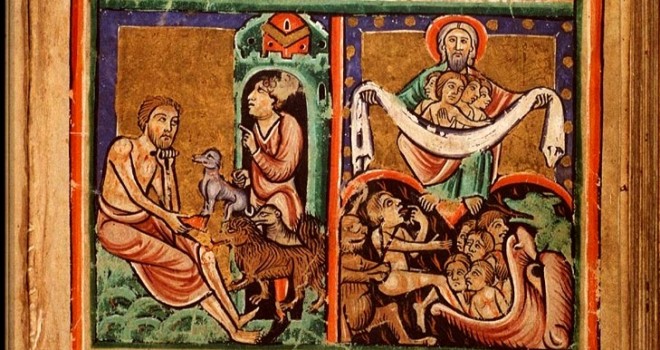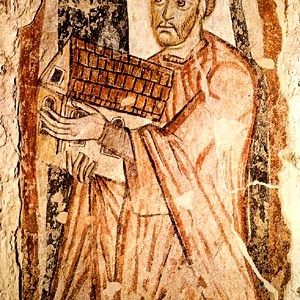Oftentimes, Jesus’ parables and their characters are a microcosm of human relationships, describing our communities, churches, workplaces and families. One lesson drawn from the parable of The Rich Man and Lazarus (Luke 16:19-31) in the Gospel of Luke is a call to attentiveness. The rich man fails to be attentive to the suffering of the other, and neglects to be attentive to his spiritual life in the way he uses his time and wealth.
In
its historical context, the parable was a warning to Israel’s wealthy leaders
and a word of consolation to the poor and huddled masses. The story presents
two characters, each on the extremes of wealth and poverty, righteousness and
wickedness.
In the beginning of the story, Jesus presents a rich man. He had no name, but he was clothed in purple and fine linen. Purple is the color of kings and queens and fine linen is the fabric of Temple priests. The rich man feasted sumptuously every day. Not moderately, and not occasionally, but extravagantly, every day: the rich man feasted for a great cost. We can assume that the rich man’s five brothers also lived this way.
The
poor man does have a name. His name is Lazarus, which means, “God has helped.”
He was in poverty and desired the little pieces of food, the crumbs, that fell
from the rich man’s table. Lazarus didn’t
desire to feast extravagantly, or be clothed in the clothing of kings and
priests; he wanted only the left over crumbs. Lazarus laid by the gate of
the rich man’s house: afflicted, crippled, and full of sores. He was so poor,
neglected, and abandoned, that the dogs licked his sores; so abandoned that he
had nobody to chase the dogs away.
The
two men in Jesus’s story experienced two very different lives: one of great
wealth, ease and merry-making; the other of pain, neglect, and abandonment. Yet
Jesus places these two men side by side,
a microcosm of human society. The rich man knew Lazarus’ name. The rich man
would have passed Lazarus on the way into his house every day where he enjoyed
his costly banquets. Lazarus remained outside in pain. The rich man closed his heart to the needs of Lazarus, but the poor man
suffered with patience. Lazarus did not curse the rich man, nor blame God,
but placed his hope in the Lord’s future consolation.
Of
course, this life is not forever. Time passes, the world changes, and all
things grow older. Eventually, both the
rich and the poor will all die. Here in the parable, our main characters
passed away. Lazarus died and the rich man was buried. Lazarus, with no one to
bury him, was carried off by the angels into the bosom of Abraham, but the rich
man found himself in torment.
Hearing
the parable, we may ask the Lord, did the rich man go to hell because he was
wealthy? No, this author doesn’t think so. In the Gospels, the rich don’t seem
to be condemned only because they are rich. The question is, when God has given someone wealth, how do they use it?
The rich man found himself in torment because when God had provided good things
for him, he didn’t think of others. Instead,
the rich man as a slave to the desires of his flesh used his wealth carelessly
by living in gluttony and luxury. Each
day he had the opportunity to give to Lazarus, even a little piece of food,
from his abundance. The rich man refused to be attentive both to Lazarus
and his own spiritual life. In the afterlife, the rich man sits outside the
gate of heaven, in pain and torment, begging from Lazarus, while Lazarus,
inside, enjoys the eternal banquet in the kingdom of heaven.
The
two received their due in the afterlife: for
a cold heart, the rich man receives the flame, and for the patience of Job,
Lazarus receives consolation. The rich man’s name is not remembered, but
the name of Lazarus is written in the book of Life. Byzantine Christians pray
for this at the funerals of their loved ones: “May their memory be eternal!”
Lazarus’ memory is eternal.
We
would do well to look for the “Lazarus” that we know at school or at work, in
our churches or our own families. Let us keep an eye out for the poor and
suffering, the abandoned and lonely people in our lives. Oftentimes, the
“Lazarus” in our lives would be satisfied with the metaphorical crumbs
from our table: time, attention or a gift given with the least effort. Let us actively look for Lazarus in our
lives, so that we don’t carelessly step over him day after day while selfishly
indulging in the good things of this life. As the Deacon calls out during
the Liturgy of St. John Chrysostom, “Let
us be attentive!”












